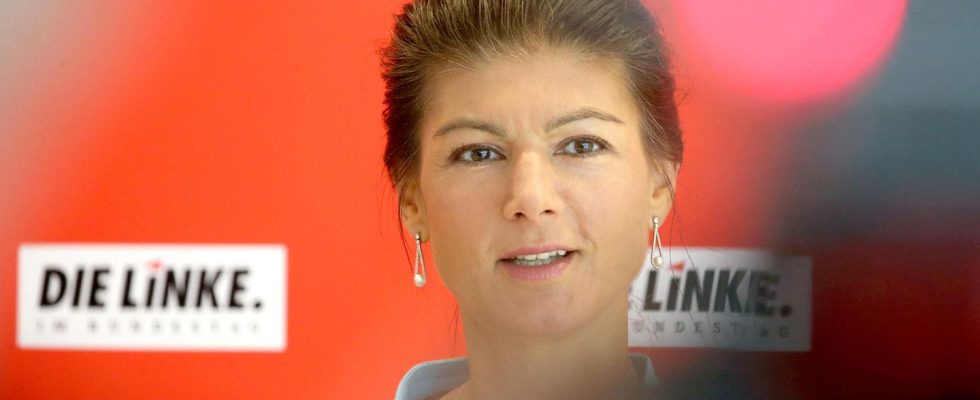interview
Zoff in the Left Party
Expert on the dispute over Sahra Wagenknecht: “The split in the left is almost complete”
Sahra Wagenknecht, here speaking at a peace rally in Berlin in February, is toying with the idea of founding her own party
© Steffi Loos / Getty Images
The left is completely broken. Sahra Wagenknecht is openly considering founding her own party. The political scientist Constantin Wurthmann has investigated why this would primarily harm the AfD.
Mr. Wurthmann, is the division of Left Party to stop?
The split is almost complete. All that is missing is the formal separation, the last line under a process that has been going on for a long time.
What would such a party split mean for the “rest” left?
This can be an opportunity for the party. Without the group around Sahra Wagenknecht, the left could actively enter into government alliances without having to fear internal resistance. It was the Wagenknecht wing in particular that was critical of government participation. The split can also be a substantive liberation. Wagenknecht and her supporters sometimes have strong nationalist tendencies and have expressed themselves pro-Russian. Without them, the left can position itself as a very left-liberal, progressive political party and, for example, find a clear position on the Ukraine war.
Is it possible that in two years there will no longer be a Left Party?
No, absolutely not. If the left comes back to a substantive position in the future and changes, frees itself from this political hostage of Sahra Wagenknecht, it can celebrate success again.

Constantin Wurthmann works as a political scientist at GESIS – Leibniz Institute for the Social Sciences in Mannheim. He teaches at the Johannes Gutenberg University in Mainz
© Private
From left to AfD, there have also recently been voter hikes. Why are the lines between the left and the extreme right so short?
I wouldn’t say that the distances are shorter than between other parties. But there are people in society who share populist attitudes and, when in doubt, vote for the largest “against” party. That was the left for a while. Through various government participations, for example in Berlin, Bremen or Thuringia, the party is increasingly established. Now some voters are apparently looking for another party that is most likely to represent this “against” narrative – and that is mostly the AfD.
You have examined how many voters would rather vote for a Wagenknecht party than other parties. According to your results, what are the main reasons?
For example, we were able to determine that above all people who have a well-established, conservative world view would choose Wagenknecht. Who wish to limit migration. It doesn’t really suit Sahra Wagenknecht, but people who represent liberal economic positions sympathize with her in particular. Wagenknecht has recently appeared above all with socio-political issues and has positioned herself against what she calls “lifestyle leftists”. At the same time, it communicated its economic and socio-political ideas to the outside world in a less pointed manner. A smart strategy I would say.
According to your study, around 54 percent of AfD voters are very fond of Sahra Wagenknecht. Can’t you say how many would actually vote for a possible Wagenknecht party?
Exactly, that remains to be seen. All we know is that many people in Germany want very strict restrictions on immigration. They wish that society would not continue to change. But according to their own self-image, they have nothing in common with right-wing extremists or neo-Nazis. Voters could therefore defect to Wagenknecht in order to be able to elect a party from the democratic spectrum, but which represents positions similar to those of the AfD.
What would a Wagenknecht party mean for the AfD?
A Wagenknecht party would be a very big problem for the AfD in many ways. Wagenknecht is a very charismatic politician who credibly addresses exactly the issues that are important to many AfD voters.
So Sahra Wagenknecht would contest the voters of the AfD.
Most recently, the AfD has increasingly distanced itself from calls for a more liberal market economy. She calls for a strong welfare state, but please only for Germans. If Wagenknecht were to found a party, then the AfD’s step in this direction no longer makes any strategic sense at all, because Wagenknecht already fills this political position. You could screw up the future for people like Björn Höcke that they planned for the AfD.
How likely is it that Sahra Wagenknecht will found a party and when?
One can only refer to what Wagenknecht said himself: that it will be clear by the end of the year whether she will be entering the race with her own party or not.


